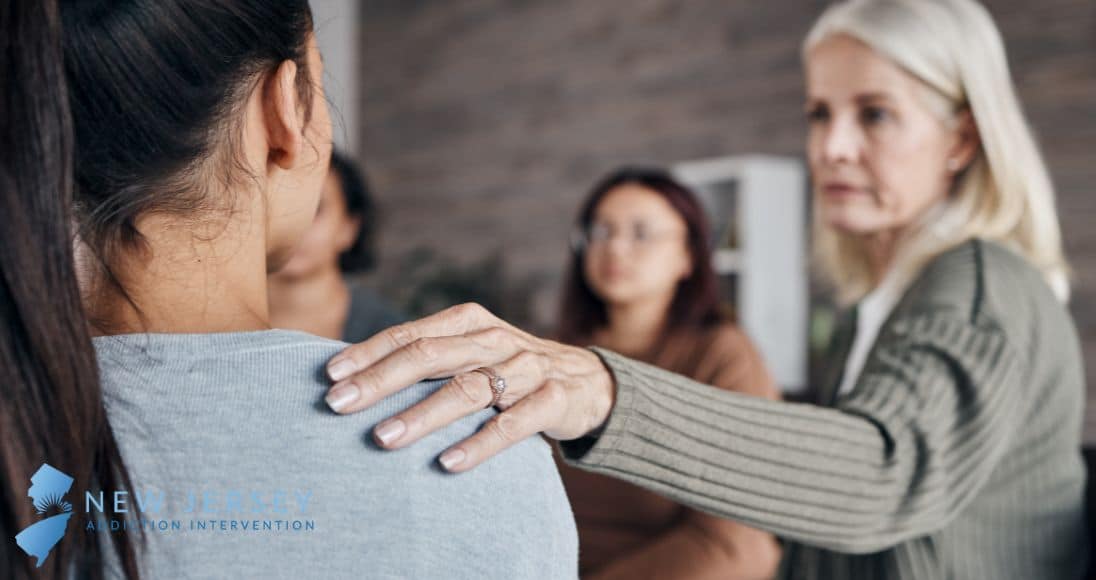The opioid epidemic has devastated communities across the nation, including New Jersey and the rest of the tri-state area. In the face of this crisis, it’s important to understand and utilize the most effective treatment options to save individuals from the depths of addiction. One solution that has gained popularity over the last decade is Medication-Assisted Treatment (MAT).
MAT combines medication with counseling and therapy to provide a holistic approach to addiction treatment. In New Jersey, MAT has proven to be a game-changer in the battle against opioid addiction, offering a range of benefits that have the potential to transform lives for the better.
Here are eight powerful benefits of medication-assisted treatment (MAT).
1. Less Withdrawal Symptoms
Opioid withdrawal can be excruciating, driving individuals to continue using opioids to avoid the pain and discomfort they experience after stopping opioids. However, the medications used in MAT alleviate this suffering by reducing the severity of withdrawal symptoms.
Medications like buprenorphine, for instance, bind to the same receptors as opioids but with less intensity, effectively easing the transition from addiction to abstinence and easing withdrawal symptoms. This reduction in withdrawal symptoms encourages more individuals to seek treatment and continue embarking on their journey to recovery.
2. Fewer Drug Cravings
The relentless and painful cravings for opioids that people experience when they get sober are a major obstacle to recovery. Fortunately, MAT addresses this challenge by reducing cravings.
The medications used in MAT, including methadone, naltrexone, and buprenorphine, help stabilize the brain’s chemistry, making it less likely for individuals to experience intense cravings for opioids. As a result, patients can focus on their recovery efforts without the constant pull of addiction and the temptation to use drugs.
3. More Engagement in Treatment
The addictive nature of opioids can make it difficult for individuals to stay engaged in therapy and counseling. Instead, clients may find themselves focusing more on their cravings than on their treatment. However, MAT helps improve treatment engagement by reducing cravings and withdrawal symptoms, making it easier for individuals to actively participate in their recovery process than it would be if they were too busy thinking about cravings or getting high. This improved engagement often translates into better long-term outcomes and increased sobriety after treatment ends.
4. Increased Treatment Retention
One of the challenges of treating opioid addiction is retaining patients in treatment programs. When temptation arises and engagement falls, individuals may choose to leave treatment early or against medical advice. Leaving rehab early often means relapse and increases the risk of a life-threatening overdose. But by decreasing cravings and increasing engagement, MAT clients experience higher rates of treatment retention and long-term success in their recovery.
5. Reduced Risk of Opioid Overdose
New Jersey, like many other states, has been grappling with a surge in opioid overdoses. MAT has demonstrated a remarkable ability to reduce overdose deaths among struggling addicts. Medications such as methadone, buprenorphine, and naltrexone used in MAT can help individuals reduce their cravings and withdrawal symptoms while increasing their engagement in treatment, making them less likely to relapse, thereby reducing the risk of overdose. By stabilizing patients and providing a safer alternative to opioid drugs, MAT has played a pivotal role in saving lives across the state.
6. Reduced Risk of Infectious Diseases
Intravenous (IV) drug use is a common route of opioid administration, especially among people who use illicit opioids like heroin. IV drug use increases the risk of infectious diseases like HIV and hepatitis C.
MAT programs often include harm reduction strategies, such as access to clean needles and education on safe injection practices. By reducing risky behaviors associated with drug use and promoting sobriety, MAT helps decrease the transmission of infectious diseases, which is a critical public health benefit.
7. Individually-Tailored Treatment Plans
MAT is not a one-size-fits-all approach. It offers the flexibility to tailor treatment plans to each individual’s unique needs. Medical professionals can adjust medication dosages and therapy components based on the patient’s progress and the specific challenges they face. This personalized approach increases the likelihood of success in recovery because everyone has their own unique challenges when it comes to addiction and recovery.
8. Less Criminal Activity
Opioid addiction frequently leads to criminal behavior as individuals resort to illegal activities to fund their drug use, but MAT has been shown to reduce criminal activity among participants. When individuals are no longer in the throes of addiction, they are less likely to engage in illegal activities to support their habit. This not only benefits the individuals but also has a positive impact on public safety in New Jersey communities across the state.
Find Medication-Assisted Treatment (MAT) in New Jersey
Medication-assisted treatment is a powerful tool in the fight against opioid addiction in New Jersey, but it may not be right for everyone. You should never take a MAT medication unless it has been prescribed to you by your doctor.
If you or a loved one are struggling with addiction and are interested in learning more about your treatment options, please contact our team at New Jersey Interventions today.
References:
- National Library of Medicine: Medication-Assisted Treatment for Opioid Use Disorder in a Rural Family Medicine Practice, Retrieved October 2023 from https://www.ncbi.nlm.nih.gov/pmc/articles/PMC7278292/
- Substance Abuse and Mental Health Services Administration (SAMHSA): Medications for Substance Use Disorders, Retrieved October 2023 from https://www.samhsa.gov/medications-substance-use-disorders
Medically Reviewed: October 4, 2023

All of the information on this page has been reviewed and verified by a certified addiction professional.

